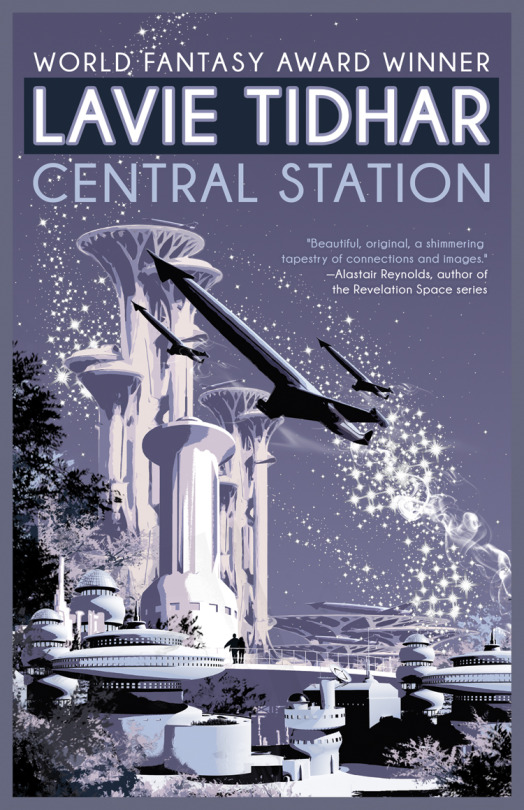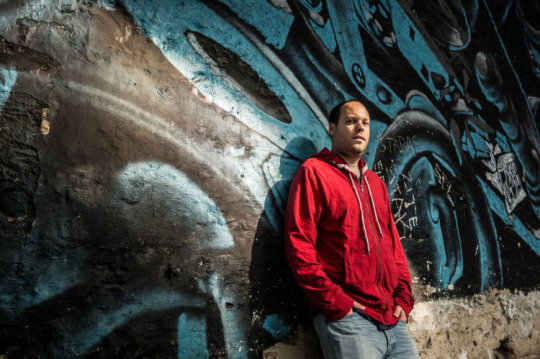CENTRAL STATION makes for an interesting, intelligent read

At SHORELINE OF INFINITY, Elsa Bouet praises Lavie Tidhar’s CENTRAL STATION.
‘Life wasn’t like that neat classification system’. Perhaps this is the sentence that encapsulates this whole novel. Lavie Tidhar’s Central Station creates a world in which lines are blurred, boundaries crossed, and new identities are created and evolve rapidly. Reflectively, the story blends different genres, from ‘everyday life’, a genre that chronicles the lives of people as they are lived, cyberpunk, the detective narrative, gothic and horror, and perhaps even fairy tales. It is a novel reminiscent of the science fiction by Philip K. Dick, William Gibson, Octavia Butler or more recently China Miéville, and it makes for an interesting, intelligent read.
The narrative explores the ways in which humans and digital intelligence coexist as both the physical and digital worlds overlap. Humans have been physically modified with a node, a body augmentation which allows them to connect to the ‘Conversation’, the network of the thoughts and memories of all humans and of the Others, digital bodiless entities who have been left to evolve in cyberspace. The story is set in the centre of a futuristic Tel Aviv, where Central Station is located. It is a hub for earthlings to travel to space, to escape Earth and its past, leaving refugees behind to tend to the travellers’ needs. It is also a place where evolution takes its course and new possibilities can be created. The story explores how people form unlikely families, rekindle old flames, fall in love, become friends, and how they forgive, resent and forget. We learn of their past, what shaped their identity and their relation with the Conversation, how this technology affects their everyday routine. The story provides a multitude of hybrid voices: the mixed race refugees; the part-cyborg Israeli soldiers now derelict, abandoned by the state and left to suffer silently from PTSD; people immersed in cyberspace games; the artist creating gods in the virtual and giving them physicality; oracles part-human part-Other; people returning to Earth after a long journey, or those arriving there for the first time; and on rare instances, we even hear from the Others.

Photo: Kevin Nixon. © Future Publishing 2013
Summer Brooks reads Lavie Tidhar’s short story “Only Human” for ESCAPE POD.
There are four Three-times-Three Sisters in the House of Mirth, and five in the House of Heaven and Hell, and two in the House of Shelter. Four plus five plus two Three-by-Threes, and they represent one faction of the city.
You may have heard tales of the city of Polyphemus Port, on Titan, that moon of raging storms. First city on that lunar landscape, second oldest foothold of the Outer System, or so it is said, though who can tell, with the profusion of habitats in those faraway places of the solar system? A dome covers the city, but Polyport spreads underground – vertical development they called it, the old architects. And its tunnels reach far into the distance, linking to other settlements, small desolate towns on that wind-swept world, where majestic Saturn rises in the murky skies.
There are two Five-times-Six Sisters in the House of Forgetting, and five Eight-by-Eights in the House of Domicile. We who are a ones, and will one day be zeros, we cannot hope to understand the way of the Sisterhoods of Polyphemus Port, on Titan.
Understanding, as Ogko once said, is forgiveness.
For more info about CENTRAL STATION, visit the Tachyon page.
Cover by Sarah Anne Langton
